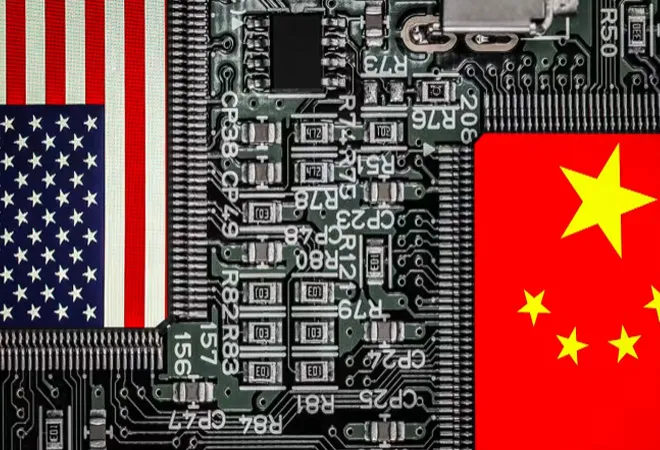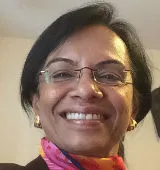
The international community – if that term still has the same meaning – faces a paradox. The pandemic forces it to work together but multilateral institutions remain hobbled by power plays and western countries don’t want an action plan that enhances China’s status, narrative or reputation.
The United Nations and its specialized agency, the World Health Organisation, have rightly faced intense criticism for failing at a time when they were most needed to deliver. On Tuesday, President Donald Trump blocked US funding for the WHO pending a review of its role in “severely mismanaging and covering up the spread of Corona virus.”
US analysts immediately said Trump wanted to deflect blame from his own poor handling of the outbreak. Bill Gates called the decision “dangerous” because 30% of the countries depend on the WHO for help in fighting the pandemic. What if politics played a role in Trump’s decision but also mounted the much-needed pressure by putting the onus on the WHO to disinfect itself? But the army of WHO defenders don’t want the spotlight on the highly politicized WHO at this time even though the organization hindered rather than helped in the initial stages.
The larger issue is one of ceding space to China within the UN system exactly at a time when the idea is to curb its influence. The US and like-minded countries have to show more leadership, not less by retreating. Reinventing the UN won’t be easy but making it work more cogently is entirely possible. A plan to give voice to the world’s weltanschauung should already be in the works at the UN Security Council, the only body empowered to bless and take action.
Last week the UNSC finally met to discuss the Corona virus pandemic because China could no longer block a discussion for the simple reason it was no longer the UNSC president. The Dominican Republic took over in April and things changed overnight. In March China had blocked every move to address the pandemic even informally on one pretext or another. It was a dead month in terms of the UNSC actually accomplishing anything. While the rest of the world was already using various virtual tools to “meet” and accomplish goals, the UNSC was dithering under Chinese leadership.
But the main problem was Russia and South Africa helping China make the argument that the pandemic was not a threat to global peace and security and thus not a subject for UNSC to worry about. In April, it is precisely the subject the UNSC is worried about. Over the next three months the international community has an opportunity to pass a strong resolution – for what it’s worth -- on the pandemic’s impact on global peace and security unhindered by procedural games.
Next month the presidency will pass from the Dominican Republic to Estonia, which floated a resolution in March only to be stymied by China, and then to France followed by Germany. It’s not a good alphabetical order for China but it could be for the rest of the members if they can come together on a sensible strategy. They could and should pass a resolution which traces the origin of the virus, demands transparency and full sharing of past, current and future data among all countries.
China will veto it but let it. This is not an occasion to dilute and obfuscate the language to win consensus. Russia will have to be persuaded to join or abstain depending on how the US reacts to its demand for sanctions relief for Iran and Venezuela which are perfectly legitimate “asks” in these grueling times.
The US ambassador to the UN, Kelly Craft, told the Council last Thursday, “The eyes of the world are on each one of us that are on this Council, and we must act to save lives.” That can only happen if there is “complete transparency and the timely sharing of public health data and information” and accurate analysis of the origins and spread of the virus.
China is not transparent even today about the spread of Covid-19 and continues to suppress research and scientific data from its own scientists and doctors. Collective moral pressure with a strong UNSC resolution can make a tiny difference.
The 64 million dollar question, however, is where in the world is the United States in this debate apart from making a couple of obvious statements? Truth be told, the Trump Administration seems more interested in squeezing Iran, Venezuela, North Korea and even poor old, tiny Cuba than isolating China in the UNSC. Trump showers praise on President Xi Jinping and on himself on a daily basis in the interest of getting medical supplies because every country is dependent on Beijing at this time.
But now that the UNSC door has been opened for discussion, two draft resolutions are under consideration – one floated by the French among the permanent five and the other by Tunisia among the 10 non-permanent members. Details of the P-5 resolution are a closely guarded secret and being discussed at the highest level in various capitals.
Surely, the P-5 are aware that the pandemic which originated in China has already claimed more than 130,700 lives and infected more than 1.5 million in countries across the world. It is bigger than any conflict the UNSC has deliberated upon in recent times.
They must act without China because it won’t get on board. And before China bribes, intimidates or coerces scores of small countries across continents, and especially the non-permanent members currently in the UNSC. The resolution can at the very least ask that China or unnamed countries must shut down “wet markets” in the interest of global security.
The views expressed above belong to the author(s). ORF research and analyses now available on Telegram! Click here to access our curated content — blogs, longforms and interviews.




 PREV
PREV


